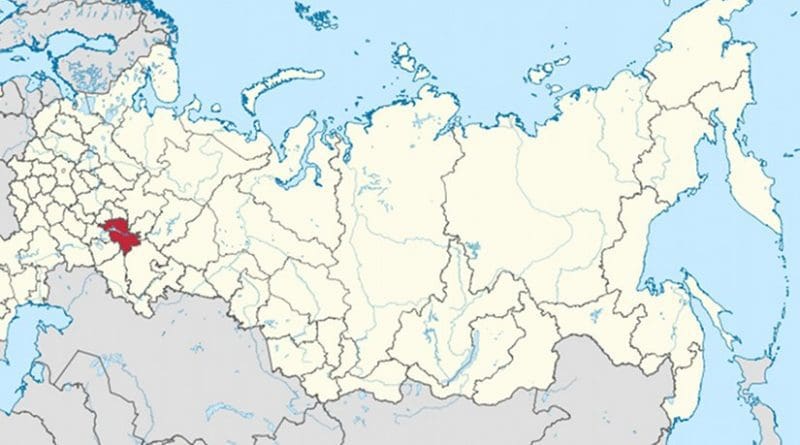Recalling Defense Of Kazan On 1552, Tatars Call For Restoration of Republic’s State Sovereignty – OpEd
By Paul Goble
Yesterday, the All-Tatar Social Center organized a demonstration in Kazan, Tatarstan in honor of those who defended that city against Ivan Grozny in 1552 and used the occasion to demand the restoration of the republic’s state sovereignty and an end to repression of Tatar activists and political prisoners.
The Center has been holding such October meetings every year since perestroika times, and although the number of participants now is far fewer than it was in the early 1990s, the complaints of those taking part and their demands have remained consistent and directed toward freedom and independence for Tatarstan (novayagazeta.ru/news/1697182.html).
Participants spoke about the Tatar’s loss of state sovereignty in recent years, about the inability of Tatars to be educated in their national language, the persecution of Tatars under the pretext of fighting Islamist radicalism, and the imperial aspirations of Moscow from the 16th century to the present day.
They called for the republic’s State Council to restore to the republic’s constitution its earlier declarations about the state sovereignty of Tatarstan and about its status as a subject of international law. Both these provisions were removed over the last decade at the insistent of Vladimir Putin’s regime.
Those who were able to attend complained that several of the leading activists, including Fauziya Bayramova and Aydar Khalim, were prevented from attending by the police who stopped their car on the pretext of preventing extremism and so delayed it that they were unable to reach Kazan in time. Bayramova was able to speak to the crowd via telephone.
In an another act illustrating the way in which the Tatarstan authorities have been forced to restrict this demonstration, participants this year were not able to march to the walls of the Kazan kremlin as a group. Instead, they had to walk there separately and lay flowers at the site independently rather than as a group.
Despite these restrictions, some Ukrainian commentators celebrated the event as the beginning of the disintegration of the Russian Federation. A typical article of this kind was simply but provocatively entitled “It’s Begun” (joinfo.ua/politic/1125353_Nachalos-Kazani-proshla-massovaya-aktsiya.html).
Both the restrictions in Kazan and this enthusiasm in Ukraine sparked objections from some Russian nationalists who suggested that no one “needs such ‘a day of memory’ in Kazan and accused participants of being the worst form of the current recrudescence of what they called “bourgeois nationalism” (forum-msk.org/material/news/11026028.html).
This year’s commemoration of the defenders of Kazan corresponded with memorial meetings in neighboring Bashkortostan where Bashkir activists marked the 25th anniversary of the declaration of their republic’s state sovereignty. At these meetings and in commentaries about them, the Bashkirs raised many of the same points the Tatars did (interfax-russia.ru/Povoljie/news.asp?id=661002&sec=1671 and kyk-byre.ru/1854-vstanem-za-respubliku-bashkortostan.html).

